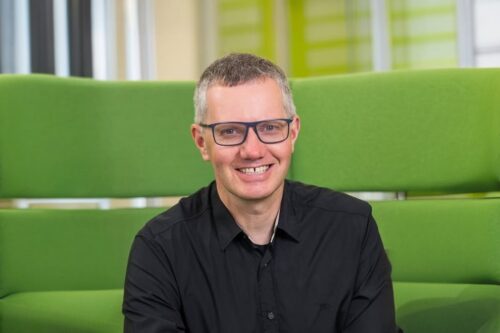
Dialogue
Confident, Curious, Responsible – This is the Child Who is Ready for School
Norwegian education expert and founder of the preschool network “Dibber” (known as “CreaKids” in Latvia)
Summer is just around the corner – a season we usually associate with rest and relaxation. However, for many families, it also marks the beginning of preparations for starting school, raising the important question: what does it mean to be ready for school? Does it mean that a child can write their name, count to ten, and recite the alphabet? Or is school readiness not just about academic skills, but also about the ability to collaborate, express oneself, listen to others, be independent, and emotionally mature enough to approach a new chapter of life with interest and confidence?
This is a question I have been reflecting on for many years, as it is closely linked to my everyday work. Observing how children grow, learn, and develop in different environments, I’ve become convinced that preschool plays a crucial role in a child’s developmental journey. My professional experience also leads me to consider how we – as a society and as educators – can better support children during their most formative years.
The Norwegian Experience: 50% Public, 50% Private Preschools
I’ve been involved in education and working with children my entire life – through scouting, the Red Cross, and other initiatives. Naturally, I chose to study pedagogy, and in 2003, we established our first preschool in Norway. It was a response to the government’s inability at the time to address the shortage of places in public preschools. As educators, we anticipated this situation and were ready to step in. Today, 50% of preschools in Norway are private, and 50% are public. However, private schools overall make up only about 7% of the entire education system. All preschools require parental co-payment, but the amount is relatively low and regulated by the state. This amount is consistent across all municipalities, making the system easy for parents to navigate and enabling informed decisions.
A Safe and Emotionally Rich Childhood
Much like in Latvia today, Norway used to have a public perception that preschools were mainly places for play – where children are supervised, not educated. That mindset has gradually changed, and more people now recognize that play-based learning is also a form of education. Still, during this stage, learning should be light and enjoyable – centered on play, interaction, and communication skills. The focus should not be on academic knowledge, but on providing a safe and emotionally rich childhood.
In Norway, there is ongoing debate about when children should begin developing academic skills. Some believe that childhood should be enjoyed without pressure until school begins – especially since children start school at the age of six. However, there are always those who argue that by then, children should already know how to read and write. I believe preschool education must strike a balance – preschools should not turn into schools, but they must recognize that children learn in a variety of ways, not just by sitting at desks.
80% of Brain Development Happens by Age Five
In preschool, children are constantly learning – whether sharing feelings in the morning, eating breakfast or lunch together, going for walks, or engaging in group activities. Preschool is the place where a child prepares for school, but this does not mean early academic instruction. While it’s true that 80% of brain development happens in the first five years of life, the most important skills during this time are the ability to express opinions, interact with others, know when to speak and when to listen, and to develop many other abilities that will be vital not only in school but throughout life.
To be ready for school, emotional intelligence is crucial – the ability to take responsibility, show respect for others, and handle practical daily tasks such as putting on shoes, organizing a schoolbag, and keeping personal belongings in order. The most important thing a child can learn in preschool is to be an active participant, not a passive observer in the learning process.
Preschool Should Inspire a Love for Learning
By teaching children how to learn, think, and solve problems, we achieve much more. That’s why, in our preschools, children learn through project-based activities, which also develop collaboration skills. Learning happens through games, play, and experiences in nature – with the priority being fun and engagement. A preschool environment should spark a desire to learn – but it should never be forced. If children associate learning with positive emotions at this stage, they will remain motivated learners in the future.
Preschool educators should be proud of their work – we are shaping the future. Preschools must be willing to invest in the quality of education and in their staff. The work of preschool teachers is highly responsible – they need extensive knowledge about child development, creativity, the ability to inspire children, and the competence to use modern technologies effectively and responsibly.
School readiness is not about what a child knows, but about who the child is. If a child feels safe, is curious, can cooperate, and isn’t afraid to make mistakes – then that child is ready to learn. And that, in my opinion, is the most important goal for preschool education.

 Log In
Log In